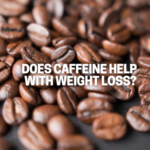Weight loss vs Fat loss? The majority of people who wish to lose a few pounds make the claim that they want to lose weight. But are you truly interested in losing weight? Contrary to popular assumptions, it is actually extremely simple to lose weight and maintain a healthy weight. In order to lose weight, you must simply weigh less on the weighing scales than you did previously.
This can be accomplished in a variety of ways, including reducing portion sizes, cutting calories, and even wearing alternative apparel. Despite the fact that the majority of people claim to want to lose weight, the majority genuinely want to shed fat. Body fat should be reduced while muscle mass is preserved.
Weight Loss Vs Fat Loss –

Is there a difference between losing weight vs losing fat?
Weight loss is defined as a reduction in total body weight. This weight can be made up of a combination of muscle, fat, and water from the body. That’s all there is to it. Weight loss is simply the reduction of one’s total body weight. Fat loss is defined as a reduction in total body fat.
The majority of people want to lose weight and reduce their body fat. Fat loss is a more specific term than simply losing weight. We can reduce body fat by reducing our caloric intake, just as we can lose weight by eating less. However, the quality of the food we eat for fat loss is more significant than the quantity.
More specificity is required when it comes to our macronutrient intake, i.e. our protein, carbohydrate, and fat intake. The dietary fat decrease is insufficient in and of itself. It is critical to have a proper resistance program in order to build and maintain muscle.
Weights are included in a resistance training regimen. Just because you are lifting weights does not mean that you will become a bodybuilder overnight. People can only gain weight and build muscle in this manner if they are in a calorie surplus, and a significant calorie surplus at that, according to the research. Simply said, exercising with weights will result in you retaining muscle mass. The greater the amount of muscle we have, the more calories our bodies burn.
While Losing Fat, You Can Maintain Muscle Mass
Okay, so if our aim is fat loss, we’ll need to pay close attention to maintaining muscle mass while we shed fat. People have a tendency to sabotage their diets by consuming too little food and too few nutrients, which results in muscle wasting.
Once you begin to lose muscle, you will be facing an uphill battle in your attempt to shed fat. This is one of the most common reasons why diets fail, second only to food addiction as a contributing factor.
Make sure you are adhering to the following fundamental principles to avoid muscle loss:
- Consume an appropriate number of calories for your body weight and degree of activity.
- Make sure the calories you consume are nutrient-dense by consuming them from fruits, vegetables, meats, legumes, tubers, dairy, and whole grains instead of refined carbohydrates.
- You should aim for calories that are 10-12 times your body weight or greater.
- To achieve the recommended amount of protein per pound of lean bodyweight, split it evenly among five meals.
- Consume enough carbohydrates to keep up with your level of activity. You can begin with 150 grams and work your way up from there.
- Healthy fats and essential fatty acids (EFAs) should account for the remainder of your calories (essential fatty acids).
- Make sure you get some exercise and give your muscles a purpose to stay in good condition. Unless you exercise, your body will eliminate the muscle that is no longer needed. By providing your body with regular stimulation, you can encourage it to conserve and even develop it.
You’re Losing Way Too Much Weight, Way Too Quickly
If you’ve lost five pounds after just one week of following a rigorous new diet and exercise regimen, the majority of that weight loss is due to water loss. When trying to lose fat at a sustainable rate, it is normally recommended to eliminate about 500 calories per day, which equates to about one or two pounds per week. Unless you are quite overweight, you do not have a significant amount of fat to lose.
Even if you don’t reduce your carbohydrate intake, reducing your overall calorie intake encourages your body to utilize stored glycogen for energy, causing you to lose water in the process. Many people notice big changes on the scale within the first few weeks of attempting to reduce weight for this reason.
The likelihood is that the majority of your weight loss was due to water loss when you first started dieting. After early water weight loss, maintaining a steady weight loss of 1-2 pounds per week is more likely to result in fat burning.
What Are The Most Effective Techniques For Fat Loss?
It is necessary to achieve a negative energy balance in order to reduce weight. You must consume fewer calories than you exert in order to lose weight. This is the most important factor in shedding pounds and body fat. This can be accomplished by limiting portion sizes or keeping track of calories consumed.
In order to decrease body fat, you must also maintain or increase the amount of lean tissue in your body. This does not imply that you should appear disproportionately large. When people say they want to ‘tone up,’ they are referring to the process of gaining muscle while also shedding fat.
A muscle in the body has a lower energy density than fat in the body. Muscle takes up significantly less room in the body than fat. If you lose body fat while gaining muscle, you will appear significantly smaller and more ‘toned’ very immediately. A healthy weight loss is defined as a loss of 1-2 pounds each week.
A person’s ability to do so will vary depending on how much weight they need to reduce. Given the fact that fat storage in the body can take years to accumulate, don’t expect to lose weight in a matter of weeks.
Weight loss must be long-term in nature. Sudden and drastic weight reduction can have major health repercussions, including heart disease and secondary diabetes. Rapid weight reduction can result in the loss of lean body mass as well as fat.
When you lose weight quickly, even if you are following a resistance training regimen, it is possible that you are not only losing fat but also muscle. Never underestimate the importance of muscle in maintaining our body composition and increasing our ability to burn calories.





















Add comment